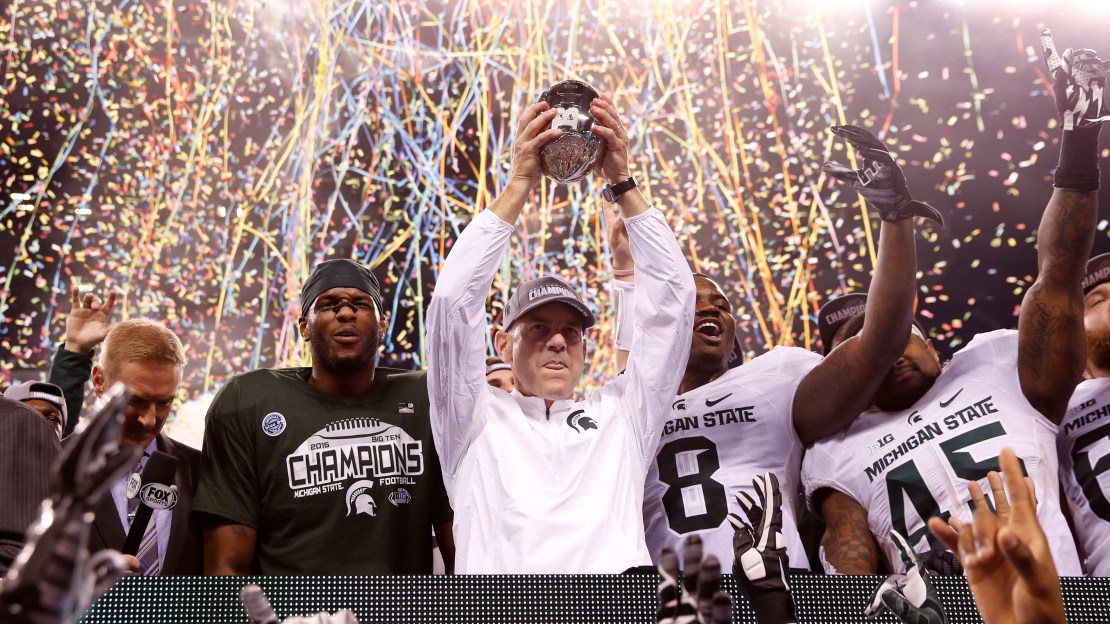Sean Merriman, BTN.com web editor, July 11, 2016
College football officials from the Big Ten, MAC and Missouri Valley Conference gathered in Chicago this past weekend for the annual College Officiating Consortium Summer Clinic.
The two-day clinic focused on major rule changes for the upcoming 2016 college football season, as well as other training sessions including everything from replay reviews to mental toughness and fitness.
The primary focus of this year's event was player safety and the new rules surrounding targeting fouls. Instant replay will now have an expanded role when it comes to the targeting rule.
Beginning in 2016, the replay official will be reviewing all targeting calls and may create a targeting call, but only in egregious instances in which a foul is not called by the officials on the field. That review may not be initiated by a coach's challenge.
Previously, when it came to targeting, instant replay could only rule on forcible contact. Now, if a replay official notices a potential targeting call that the officials on the field did not throw a flag for, they can then communicate down to those officials and they will in return take a look at the play to see if it is indeed worthy of a targeting foul.
"We felt this change needed to happen, so now, we're telling the replay people that we want them to re-officiate the play," said Bill Carollo, who is the Big Ten Coordinator of Football Officials. "It's a really important position, and that's why we're putting more and more on the plate of the replay people."
The facts are simple — football is an incredibility fast-paced sport where helmet-to-helmet hits are pretty much inevitable. Any small movement can result in helmet-to-helmet contact, which is more than often unintentional.
What officials are looking for is at least one indicator of a player making a targeting action. Targeting elements include leading with the crown of the helmet and forcible contact to the head and neck area of a defenseless opponent.
"It's a tough call for us, that's why were bringing replay into it," Carollo said. "It's not always going to be perfect, but we're going to live with that controversial call. It's part of the game."
The Big Ten Conference is set to enter the 13th year of using the instant replay system, which has evolved immensely since its initiation and has become a vital part of today's game.
"It saved my career," said senior Big Ten referee Dan Capron. "Before instant replay was around, if you made a mistake during the game, it was a mistake forever.
"Now, we?ve grown accustomed to it, and now it?s such a fundamental, vital part of the game that I couldn?t imagine going back to the days without it. Officials love it, coaches love it, the players love it, and I think the fans love it as long as it doesn?t go too long. It?s a great thing."
The expanded role replay officials will have in determining targeting calls should help make the game safer, in addition to making sure the calls are correct. According to Corollo, nine out of 12 targeting calls were reversed during the 2015 season.
"You're not going to satisfy everybody every time," Corollo said on targeting. "But when you talk about targeting, we would rather error on the side of safety.
"We want to change behavior. If we're too light on it, if it's just a 15-yard penalty, they're just gonna keep doing it. Targeting calls have gone up, so we're still working on it."
***
Here is a look at some other major rule changes for the 2016 college football season:
Sliding ball carrier added as a defenseless player: A ball carrier who has obviously given himself up and is sliding feet first.
Tripping against any opponent illegal: Tripping is intentionally using the lower leg or foot to obstruct an opponent below the knee.
Low hits against the passer: It is not a foul if the defender grabs or wraps this opponent in an attempt to make a conventional tackle without making forcible contact with the head or shoulder.
Coach ejected after second unsportsmanlike foul: Any coach who commits two unsportsmanlike conduct fouls in the same game shall be disqualified.







